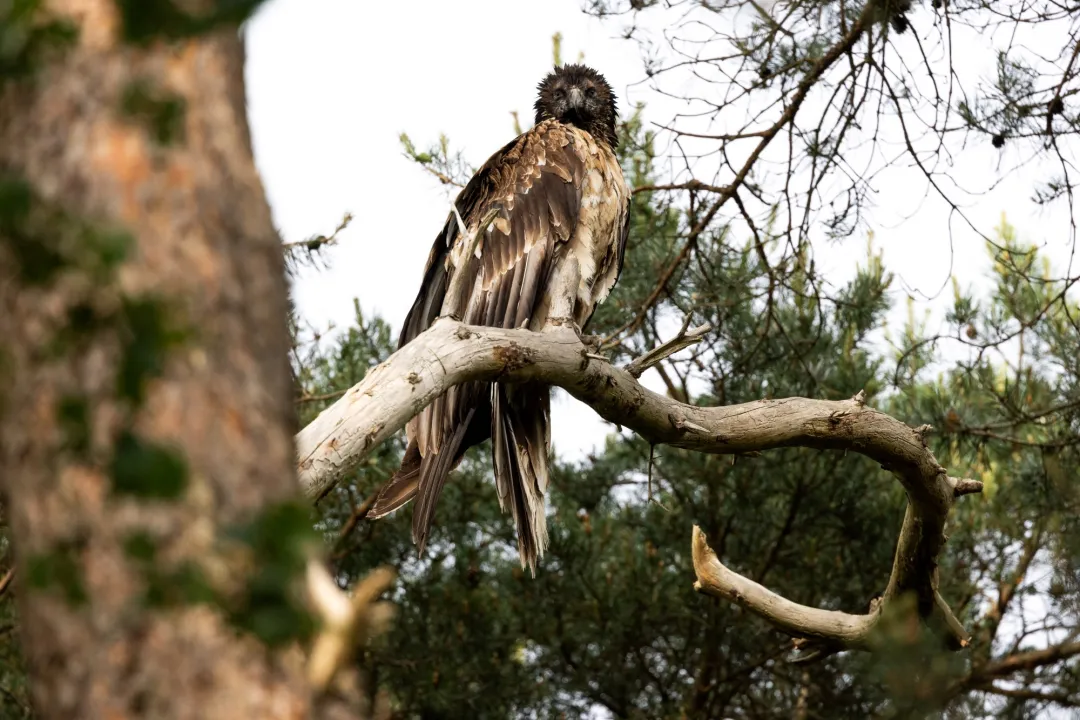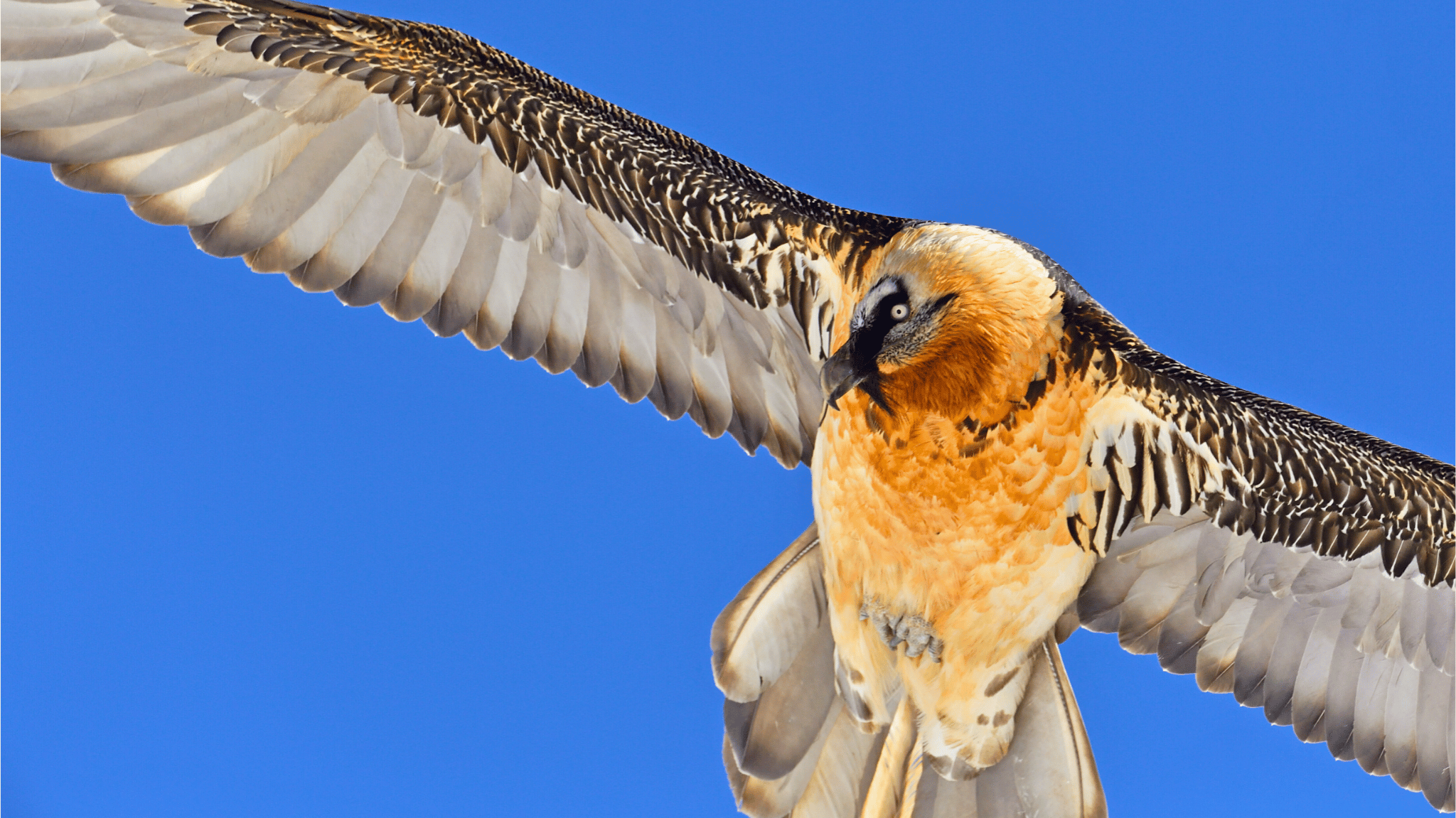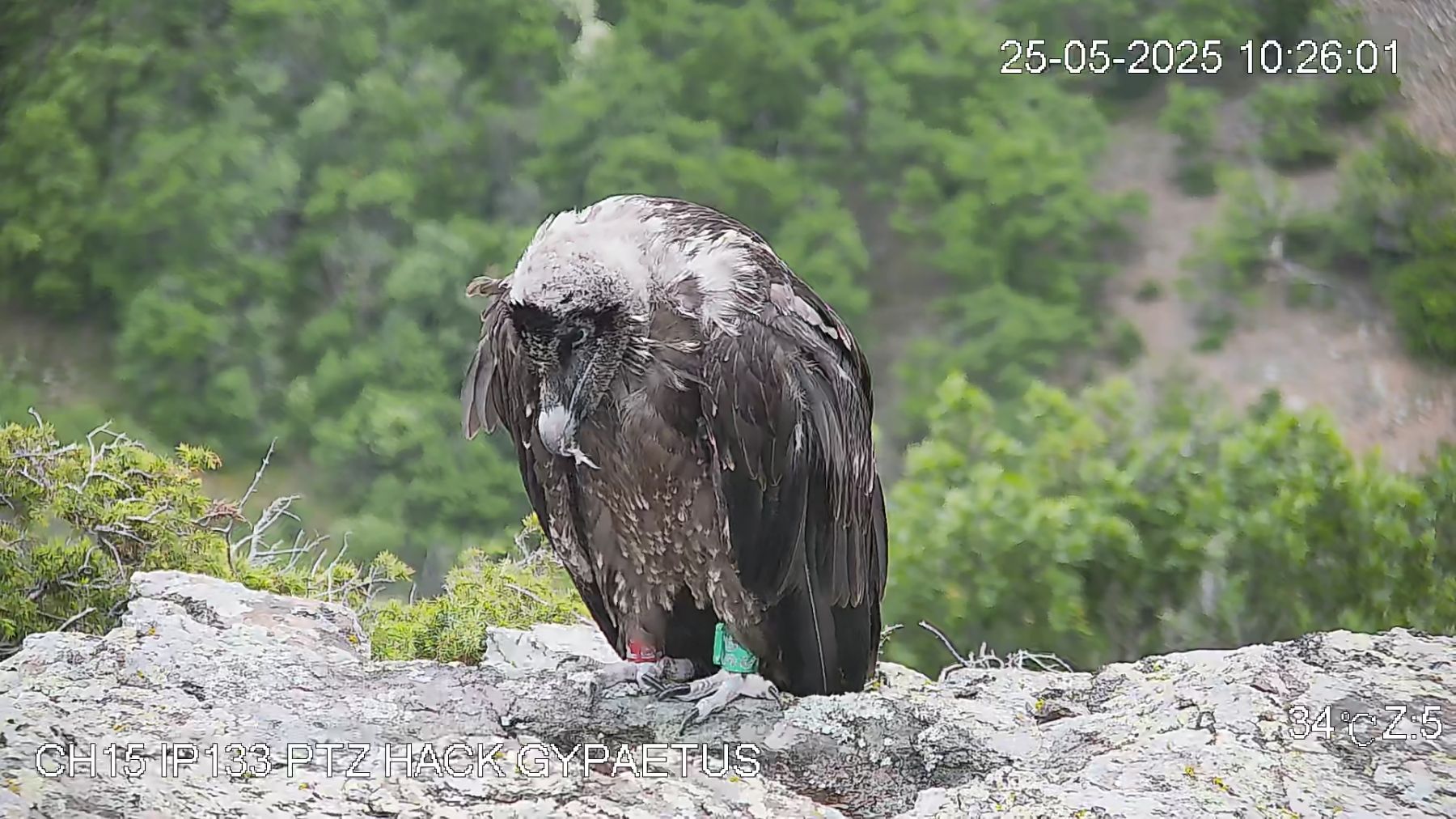Last Sunday the 3rd of June, two young bearded vultures born within the VCF-coordinated captive-breeding programme for conservation (EEP) were released in the Northern Corsican mountains, in the valley of Niolu. This is the second year in a row that such an event takes place, after the release of Cimatella and Muntagnolu in 2016.
Over a hundred people gathered in the municipality of Lozzi for the occasion, and accompanied the two young vultures in their journey to the hacking cave where they will spend the last weeks before they fledge and join the wild population. The event was organized by the Parc Naturel Regional de Corse (PNRC) and counted on the participation of the President of the PNRC, representatives from the French government (Direction Régionale de l’Environnement, de l’Aménagement et du Logement, DREAL), the Fondation Albert II de Monaco and the mayor of the municipality of Lozzi, as well as the presence of representatives of the VCF and Ostrava zoo.
The birds were named by the children of the school of Niolu, who called them Luna (meaning “moon” in Corsican) and Ercu (named after a local shelter). Ercu was born in the bearded vulture specialized captive breeding centre of Guadalentín (Andalusia, Spain) on the 28th of February, whereas Luna (BG959) was born in Ostrava Zoo (Czech Republic) only one day later (1st of March). Both have been carefully selected among the 18 birds identified for release in the 5 reintroduction-restocking projects coordinated by the VCF (Andalusia, Vercors-Baronnies, Grands Causses, the Swiss Alps and Corsica), following a specific plan that takes into account genetic considerations as well as age, sex and logistics, among others.
The population of bearded vultures in Corsica is the last vestige of a former meta-population that used to include Sardinia, Sicily, the Alps and Corsica. It has suffered a severe decline in the last decades, particularly during the last 10 years where the numbers of pairs have dropped from 10 to the current 5, while the productivity has plunged even deeper to zero in the last 2 years. This situation has been caused by a combination of factors, mostly the decrease in genetic diversity and increase of inbreeding levels, human-caused mortality, stochastic events and lack of food resources. In a last attempt to save this population from extinction, an emergency action plan was developed and is currently being implemented.
Genetic considerations are being tackled from two fronts: 1) Securing the remaining genetic information by including Corsican birds in the Bearded Vulture EEP through the extraction of eggs from unviable pairs; and 2) increase the genetic diversity in the island by restocking with birds of different lines from the captive breeding network. The extraction of eggs started last year and one vulture is already in captivity waiting for his future partner, while unfortunately both eggs collected in 2017 were unfertile, coming from a pair which has produced just 3 chicks during the last 10 years, none since 2014. The actions for the second point started last year, as mentioned before, and so far 4 birds have already been released into the Corsican mountain ranges.
Ercu and Luna are now getting used to the release area, enjoying the amazing views they get of the valley of Niolu where they will be flying in less than a month. Until then, a team of technicians and assistants of the PNRC and the VCF will monitor the daily frolics of the two young birds while they are in the cave and later on till they leave the area. Soon before fledging, a technician from the VCF will set a transmitter on both birds to follow their long-term movements. We keep our fingers crossed that everything goes as planned and wish both of them a long and successful life. All being well, some day we will see them settle down and bring new vigour into the Corsican population!
The release of the bearded vultures was partly funded by the Direction Régionale de l’Environnement and the Fondation Prince Albert II de Monaco.
Photos VCF



